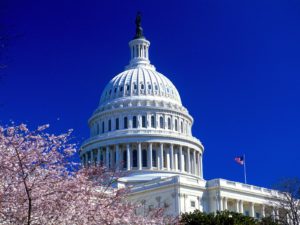By Maya Efrati
After nearly a year of research and review, the U.S. Government Accountability Office (“GAO”) has released a report outlining best practices for how Congressional staff should appropriately handle information from whistleblowers. Titled “Key Practices for Congress to Consider When Receiving and Referring Information,” the report focuses on what happens when federal whistleblowers reach out to their representatives in Congress, whether in the House or Senate, for help. The GAO produced the report on the request of the House of Representatives’ Committee on Appropriations, Subcommittee on the Legislative Branch.
One of the ways that Congress is able to fulfill its mandate for oversight of the federal government is through receiving and acting on whistleblower information. The GAO report notes that, “[w]hile data is not available on the number of whistleblower disclosures across Congress, a staff member at one congressional office said the office can receive hundreds of whistleblower disclosures every year.” Yet too often, those whistleblowers are retaliated against for bravely speaking up about waste, fraud, and abuse. Compounding the problem, the GAO report demonstrated some existing deficiencies in the process for whistleblowers to disclose their information.
Crucially, the GAO noted the importance of maintaining the confidentiality of whistleblowers who come forward with information to Congress. Key practices highlighted in the report include that Congress should “Develop… [p]rotocols to keep disclosures secure and protected, while appropriately limiting access to information on a need-to-know basis.”
This includes not only handling of sensitive or classified information provided by the whistleblower, but also the whistleblower’s own personally identifiable information, which is any details that could allow someone to trace that person’s identity. Whistleblowers often risk their careers and more when speaking up about what they know; no whistleblower should be placed in an even more precarious situation because Congress lacks appropriate processes and guidelines to help them.
The GAO report also emphasized the importance of using direct experience working with whistleblowers to inform the procedures enacted by, and the training given to, the Congressional staff who are on the front lines of interacting with whistleblowers. Stephen M. Kohn, leading whistleblower law expert and Chairman of the Board of the National Whistleblower Center, has represented whistleblowers for over 30 years. Kohn noted that,
“The risk of reprisals that whistleblowers continue to face when their identity is exposed is unacceptable. From the Founding Fathers and the U.S. Continental Congress to the 116th Congress today, the data proves that whistleblowers are the best way to stop fraud and corruption. It’s encouraging to see this report take seriously the risks faced by whistleblowers, and the entire whistleblower community looks forward to seeing Congress enact further reforms to help federal whistleblowers. The best practices and key issues highlighted in the GAO report should serve as guideposts for whistleblowing to Congress moving forward.”
Maya Efrati is Policy Counsel at National Whistleblower Center.
